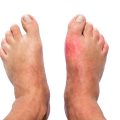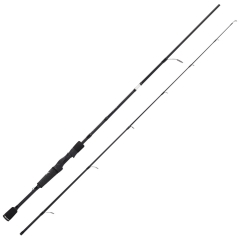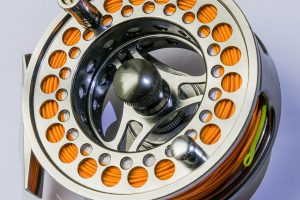Omega-3 fatty acids are a nutrient in the diet because they help build and maintain cells. Most fish have a high amount of omega-3, which makes them a healthier alternative to other meats.
However, when it comes to grouper, they are actually not high in omega-3 at all compared to other fish.

Is There Omega-3 in Groupers?
Yes, there is omega-3 in edible groupers, which are black, red, and gag grouper, but it is not as high as in other fish. According to doctors, you should eat oily fish rich in omega-3 twice a week, but groupers can only be consumed once a week safely.
The recommended amount of omega-3 for adults is 250 mg to 500 mg per day, and groupers usually have that amount of this fatty acid. Still, as said above, they have other chemical substances in them, so the fish can only be eaten once a week. This makes the fish not a good enough source of omega-3 if eaten for health reasons. There are other fish like catfish, clams, mackerel, and tuna, which have the same amount of omega-3 and can be eaten every day of the week.
People with heart diseases need around 1,000 mg of omega-3 daily in their diet, and grouper can never be enough for that. Fish like anchovies, oysters, sardines, salmon, and other such fish have this amount of fatty acid. Therefore, groupers definitely have omega-3. However, it is not enough at all, so most people only eat it for the taste.
Can You Eat Grouper Fish?
Technically, yes, you can eat grouper fish, but should you eat it? Not really, because it has mercury in it, which can cause cancer. This is why this fish can only be eaten once a week to keep the mercury level below the level that can cause disease.
The two species of grouper that are eaten are Mycteroperca and Epinephelus. These fish taste good and have no intramuscular bones, which makes them easy to eat. However, the fish has a thick skin that must be removed to clean it properly before cooking. People like the strong flavor that the fish has as well.
Here are the reasons this fish should be avoided.
It Has Mercury
The fish can have mercury anywhere from 0.3 PPM to 0.49 PPM, and the deadly amount of mercury above which humans cannot bear mercury is 0.5 PPM, so experts don’t really like this fish. This fish should especially be avoided by pregnant women, nursing women, and small children. A high amount of mercury in diet can lead to mental disabilities, especially in children, and other harmful illnesses.
Low in Protein
Many fish have very high protein content, making them healthy and good for the body. However, groupers only have 16.5 grams of protein, and we humans need 50 grams of protein a day, so it only meets 25% of the daily requirement. Most other fish like Pollack, cod, and sardines have a much higher protein concentration, so they meet almost 100% of your daily requirement with just one serving.
Overfishing Is an Issue
Groupers don’t reproduce as often, and overfishing is already an issue, so their numbers are dwindling. Groupers are very important in the ecosystem because they eat lots of coral fish like lionfish, which other fish cannot eat and become invasive. Fishing this fish causes havoc on the food chain, so it should be avoided if possible, as our planet is already suffering enough.
What Nutrients Does the Fish Have?
Although it is bad for people, just like most fish, it has some essential nutrients that are actually good for those who consume it. So here are some reasons this fish could be good for eating.
Low in Calories
This fish is actually very low in calories. A 3-ounce serving of this fish only has 100 calories before being cooked, which is very little compared to much other fish. Even after cooking, however you cook it, it only has around 250 calories, and a human needs at least 2,000 calories in their diet, so this is a good fish if you are trying to lose weight. Just make sure to not depend on it too much, as it is not great for your health.
Low in Fat and Carbohydrates
Interestingly, groupers don’t have any carbohydrates at all. They do contain fat in the form of omega-3 and unsaturated fat, which is good for blood cholesterol, heart rate, and other parts of the body. Of course, these beneficial fats are in very low quantity compared to other fish, which have more of them. This is why the fish is low in calories as well.
High in Vitamins and Minerals
Most fish are an excellent source of many vitamins and minerals, and groupers are not an exception. A grouper can provide 25 percent of your vitamin D needs, 15 percent of your iron, 20 percent of your magnesium, and also contain small amounts of the B-complex vitamins. It also has zinc and vitamin A in small amounts.
Another great thing is that the fish is very low in sodium compared to other fish. It only has 45 mg of sodium per serving of shellfish, canned tuna, and anchovies, which have a very high amount of sodium. Too much sodium is bad for your health.
Conclusion
Omega-3 is an essential fatty acid that our bodies can’t produce on their own. It’s important for brain health and for keeping your cardiovascular system healthy. You can get Omega-3 from plant foods like flaxseed or chia seeds, but those sources contain only ALA (Alpha Linolenic Acid). To get EPA or DHA (the other two types of Omega-3), you need to eat fish, seafood or take fish oil supplements.
Now you know that grouper is not very high in omega-3, but it is not very low in it either. The fish has many disadvantages like having mercury in it and low protein amount, but it has a lot of healthy vitamins and minerals as well. Based on your requirements, you can make the decision if this fish is suitable for you or not.












Pingback: Is Grouper Keto Friendly? Plus Grouper Keto Recipes | Reel Fishing Guru